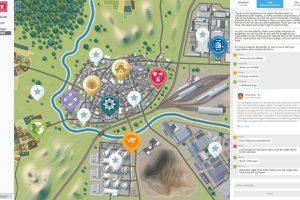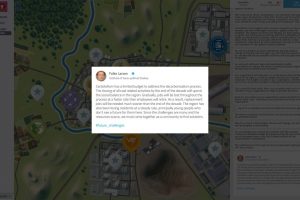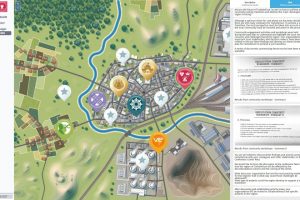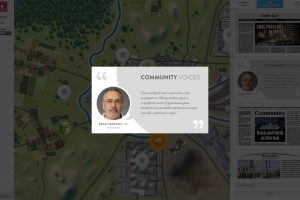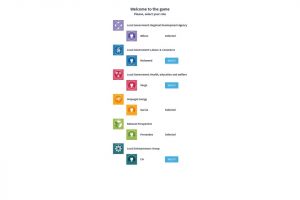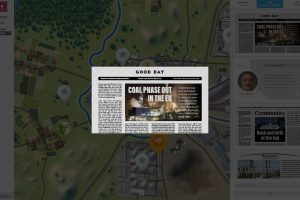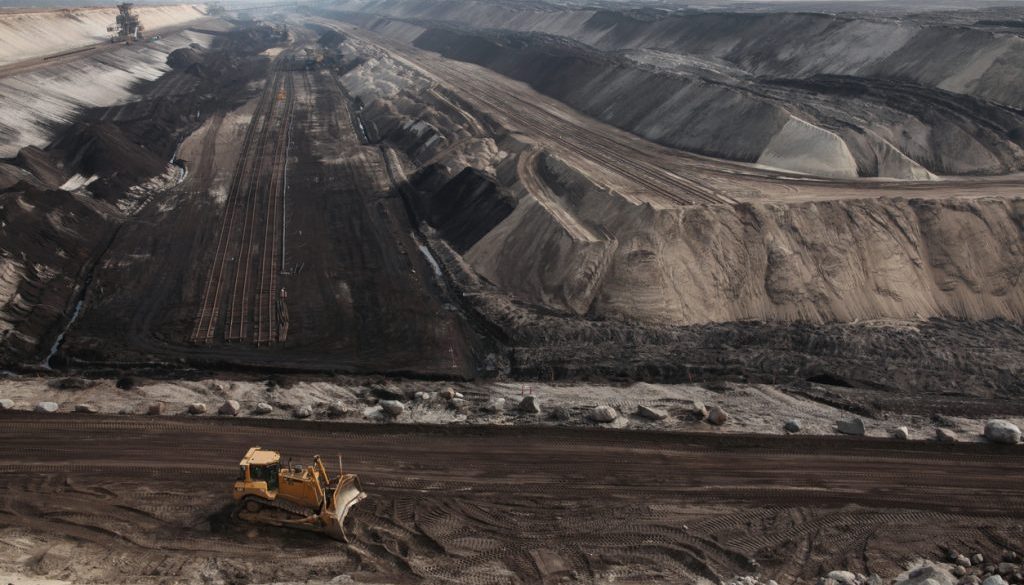
Many European countries have a long tradition of lignite mining. The decline of the lignite sector, connected both with the pressures resulting from the climate crisis and, in some cases, from depleting resources, have grave socio-economic implications for many regions across the world. Economic downturn, aging populations, and lack of job opportunities are only a few characteristics that make the process of the transition difficult.
So, how to deal with high economic dependence on lignite? How to support various groups of interest in their struggle to transit to the low-carbon future?

The region will be a fictional lignite coal mining region that could represent any in Europe.
The REBOOST Simulation is a facilitator-led multiplayer game, where participants are given the opportunity to develop their own visions of a low-carbon future. They test solutions and carve their pathway towards a just transition and a revitalization of a fictional region based on the case studies researched in the European Institute of Innovation and Technology Climate – Knowledge and Innovation Community (EIT Climate-KIC) supported project REBOOST- A Boost for Rural Lignite Regions.
The project aims to support stakeholders in three European lignite regions ((Lusatia in Germany, East Greater Poland Voivodeship in Poland, and Gorj in Romania) in the transition from the current high economic dependence on lignite to a low-carbon future. The three regions share some characteristics that make the transition process difficult, including the economic downturn, aging populations, lack of job opportunities, and weak stakeholder cooperation. However, the regions differ with respect to the availability of political support from governments and funding for the transition process.
Where possible, the project supports the actual implementation of alternative and promising solutions to lignite-fired power generation with the potential to feed into the Climate-KIC Deep Demonstration for Just Transformations project.
Within the project Centre for Systems Solutions designed for each case study a policy simulation. The main goal of the simulations is to involve and empower local stakeholders in the design and exploration of alternative future pathways. Players explore an interactive environment resembling the main socio-economic and geographical characteristics of the actual regions. The results of the simulations were shared to stimulate mutual learning and innovation diffusion across the three regions.
The simulation is available in English and Romanian. The development team is now working on the Polish version, which is slated to be released in 2022. The simulation is free of charge for non-commercial purposes.
Time to play 2-2,5 hour
Number of players 10-30
Target groups
The simulation targets two types of users – facilitators who are willing to use the game to bring the related topics to wider audiences, and players who will engage in the knowledge co-production through participation.
Who should facilitate
- Leaders in coal-dependent regions
- Teachers, trainers, and educators
Who should play
- All citizens concerned with climate and energy transition challenges
- Students
- Local stakeholders in coal-dependent regions
- National and local policy-makers
The main goals are for the players to
- Understand the potential challenges for the energy transition phase
- Switch short-term thinking and ad-hoc solutions to long-term thinking
- Experience and understand the complexity of a system-wide change
- Explore transition strategies
- Learn how to navigate through the climate crises challenges
- Develop skills for effective communication and collaboration
- Learn how to foster and integrate both technological and social innovations
- Acquire the skills necessary to effectively communicate, collaborate and seek compromises the dialogue between key stakeholders
- Form a kickoff for further region-specific collaboration between participants
